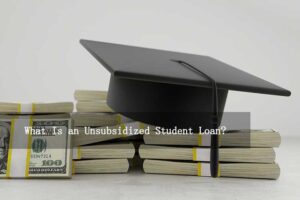
Understanding the intricacies of student loans can be overwhelming, particularly during tough financial times. A frequent inquiry among borrowers is, “Does bankruptcy clear student loans?” This article delves into the connection between bankruptcy and student loans, the difficulties in discharging these obligations, and possible alternatives to help you manage your finances more effectively.
Does Bankruptcy Clear Student Loans?
The short answer is: No, bankruptcy does not typically clear student loans. According to federal law, student loans are considered non-dischargeable debts. This means that even if you file for bankruptcy, your student loans will generally remain intact.
However, there are exceptions to this rule under specific circumstances, primarily involving a demonstration of “undue hardship.” This raises the critical question: what qualifies as undue hardship?
Understanding Bankruptcy
Bankruptcy is a legal process that provides individuals or businesses relief from overwhelming debt. It allows them to either discharge their debts or create a repayment plan to manage them better. In the U.S., there are primarily two types of bankruptcy filings for individuals: Chapter 7 and Chapter 13.
Chapter 7 Bankruptcy
Chapter 7 bankruptcy, often referred to as “liquidation bankruptcy,” involves selling off non-exempt assets to pay creditors. It typically takes a few months to complete and can lead to the discharge of most unsecured debts, including credit card debt and medical bills. However, this form of bankruptcy has limitations, especially concerning student loans.
Chapter 13 Bankruptcy
On the other hand, Chapter 13 bankruptcy allows individuals to keep their assets while creating a repayment plan to pay off their debts over three to five years. This option is often used by those with a regular income who want to avoid losing property. However, student loans still present a unique challenge in both types of bankruptcy.
What Constitutes Undue Hardship?
To have student loans discharged through bankruptcy, borrowers must prove that repaying the loans would cause “undue hardship.” The criteria for this can be challenging to meet. Courts often apply the Brunner Test, which outlines three key elements:
- Poverty: The borrower cannot maintain a minimal standard of living if required to repay the loans.
- Persistence: This state of financial distress is likely to continue for a significant portion of the repayment period.
- Good Faith: The borrower has made good faith efforts to repay the loans.
Meeting these criteria can be tough, and many who attempt to discharge student loans through bankruptcy find that the burden of proof is high.
The Bankruptcy Process
If you’re considering filing for bankruptcy in the hope of discharging your student loans, here’s what you need to know about the process:
- Consult a Bankruptcy Attorney: It’s crucial to get professional advice. A lawyer specializing in bankruptcy can help you understand your options and guide you through the legal requirements.
- Filing for Bankruptcy: You’ll need to fill out a petition and schedule a meeting with creditors. This process can be complex and requires complete transparency about your financial situation.
- Undue Hardship Claim: If you plan to challenge the nondischargeability of your student loans, your attorney will help you file an adversary proceeding to prove undue hardship.
- Attend Court Hearings: Be prepared to explain your financial situation and present evidence supporting your claim.
- Await the Court’s Decision: The court will decide whether your student loans can be discharged based on the evidence you present.
Alternatives to Bankruptcy
While bankruptcy might seem like a viable option, it is essential to explore alternatives that may help you manage your student loan debt without the long-term consequences of bankruptcy. Here are a few alternatives to consider:
Repayment Plans
Federal student loans offer several repayment plans tailored to different financial situations. For example:
- Standard Repayment Plan: Fixed payments over ten years.
- Graduated Repayment Plan: Payments start lower and gradually increase.
- Extended Repayment Plan: Payments spread over up to 25 years.
Income-Driven Repayment Plans
These plans adjust your monthly payments based on your income and family size, making them more manageable. Some options include:
- Revised Pay As You Earn (REPAYE)
- Pay As You Earn (PAYE)
- Income-Based Repayment (IBR)
If you qualify, these plans can significantly reduce your monthly payments and even lead to loan forgiveness after a set period.
Deferment and Forbearance
If you’re experiencing a short-term financial struggle, you might want to look into deferment or forbearance. These choices enable you to temporarily pause or lower your payments without impacting your credit score.
Impact on Credit and Future Loans
Filing for bankruptcy can greatly impact your credit. It may stay on your credit report for as long as ten years, which can make it challenging to obtain new loans or attractive interest rates later on. Additionally, lenders often see bankruptcy as a warning sign, potentially limiting your financial options even after your bankruptcy is resolved.
Real Stories: Navigating Student Debt
Many students and graduates have faced the daunting challenge of student loan debt. Here are a few insights from individuals who have navigated the bankruptcy landscape:
- Sarah, a recent graduate: After struggling to find a job in her field, Sarah was overwhelmed by her student loans. She initially considered bankruptcy but opted for an income-driven repayment plan, which made her payments more manageable. “I realized that bankruptcy wasn’t the best option for me. Instead, working with my loan servicer helped me find a solution that fit my financial situation.”
- Mark, a former student: Mark attempted to discharge his student loans through bankruptcy but was unsuccessful in proving undue hardship. “It was a tough lesson. I learned that I needed to be more proactive about managing my debt rather than relying on bankruptcy as a quick fix.”
Conclusion
While the answer to the question “Does bankruptcy clear student loans?” is usually no, it’s important to explore your options when facing financial challenges. Generally, student loans cannot be discharged in bankruptcy unless you can demonstrate undue hardship, which can be quite difficult to prove.
If you’re having trouble with your student loans, you might want to look into alternatives such as income-driven repayment plans, deferment, or loan consolidation. Getting professional financial advice can also help you find personalized strategies to effectively handle your situation.
Being aware of your rights and available options can empower you to make informed choices for your financial future. Remember, you’re not alone in this process; there are resources and support systems ready to assist you in managing your student loans.



